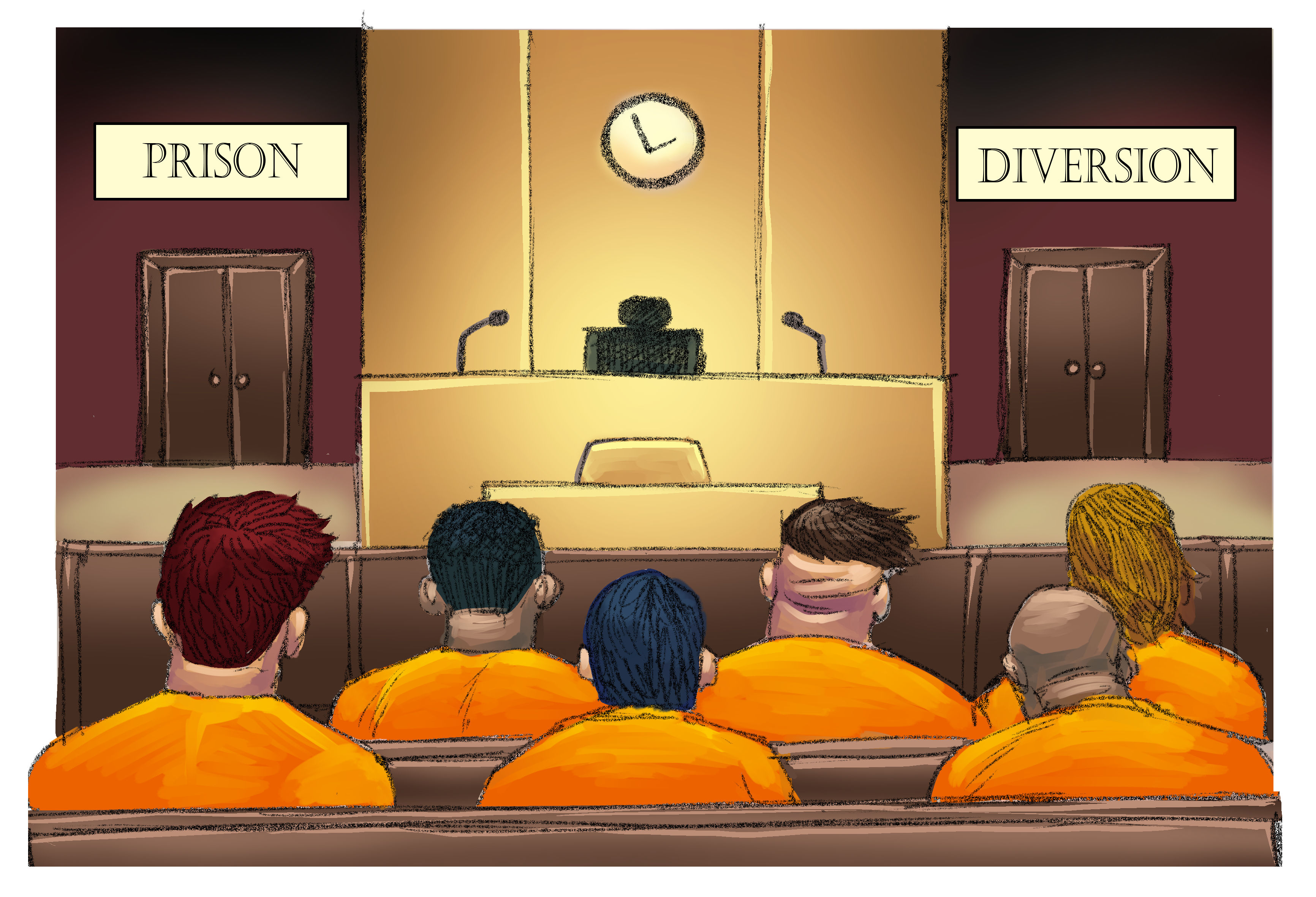Editor’s note: Out of respect for the privacy of the individuals depicted in this story, we have changed those individuals’ names.
Reggie was going for breakfast at Denny’s with some of his buds. It was 10am on a Saturday but it wasn’t “brunch.” Reggie is adamant about that. It was just guys going to breakfast, ready to slam back stacks of pancakes and troughs of bacon. No frills. No bottomless mimosas.
But the whole morning went to hell before it even began. Reggie was pulling into the Denny’s parking lot in his mom’s Honda Civic when he accidentally hit the backside of a Dodge Ram. The owner of the beefy truck stepped out and, according to Reggie, the dude “really went ballistic.” He yelled and screamed at Reggie to get out of the car, goading him into a fight. Reggie exited the Civic and tried to get the other man to “slow his roll.” It didn’t work. The dude punched Reggie in the face. Reggie punched back hard. Repeatedly.
Reggie is a veteran who has served two tours in Afghanistan and has been diagnosed with PTSD. He’s big, bald and tatted up. American flags, eagles and his grandmother’s birthday wrap his bulging arms. Usually he’s pretty laid back, but that morning he was seeing red. “I didn’t stop. I couldn’t stop,” Reggie told me. “It was messed up.” His friend Vickie leaned over to interject,“It was fucking stupid.” Reggie shrugged. “Yeah, pretty fucking stupid. So now I’m here.”
“Here” is Department 42 of the Criminal Courts building where Vicky, Reggie and I are currently seated in the gallery. Presiding over the court is Judge Michael Tynan, a man with a wisp of silvery grey hair, a dry sense of humor and an obvious affection for trinkets. His bench is cluttered with a miniature hourglass, several geodes and a menagerie of plastic animals.
Department 42 is known as a CCC or “Community Collaborative Court.” It’s the site of a multitude of diversion efforts such as Drug Court, Sentenced Offender Drug Court, Co-Occurring Disorders Court, Second Chance Women’s Re-Entry Court, and Veterans Court. A separate program called the Office of Diversion and Re-Entry is run out of a different court headed by Judge Karla Kerlin, with a focus on providing permanent housing for the homeless and mentally ill.
Simply stated, the goal of these courts is to divert offenders from incarceration and, frequently, to provide support in the form of housing, job training, counseling or drug addiction treatment. The support is provided through the court’s partnership with community organizations such as The Red Cross, Prototypes Women’s Center, IMPACT Alcohol Treatment Center, the Center of Divine Healing and Compton Mental Health. The court monitors an individual’s progress through frequent court appearances. If they relapse or reoffend, individuals risk facing the maximum sentence of their diverted crime. If they succeed, the charge is dismissed entirely and the former defendant can continue their life with a clean slate and a brighter outlook.
Diversion programs have been a hot topic in criminal justice circles for decades as well as a hot button issue in the recent DA debates. It makes sense: in the context of our mass incarceration crisis, advocates are hungry for an alternative to the traditional lock-em-up mentality. Diversion is particularly appealing because it presents the capacity to view defendants from a more holistic perspective, addressing the underlying issues that contributed to the individual committing a crime, rather than simply punishing them for the act itself. Was the meth dealer addicted to meth while he was dealing? Maybe inpatient rehab is required. Was the defendant homeless and mentally ill when she committed the burglary? The solution might be supportive housing and counseling services. Was the veteran suffering from PTSD when he committed assault? He could probably use anger management classes and a support group.
That’s why Reggie is in court. After the fight in the Denny’s parking lot, Reggie was faced with a charge of felony assault likely to cause great bodily injury. When Reggie was arrested, Vickie was the one to bail him out. Vickie is a self-described mama bear with long black hair and ripped jeans. She served in Afghanistan with Reggie and the two have been like brother and sister ever since. It was Vickie who had heard about the veteran’s diversion program. Whenever she “dragged Reggie’s ass to court” she pestered his public defender about it. “Eventually,” she said, “shit just got done.” Now instead of facing up to 4 years in prison, Reggie has probation and anger management classes. He’s finally dealing with the emotional trauma of his military service and he’s learning skills to mitigate his PTSD.
As Owen Smith noted in his article about the CCC in Van Nuys, the procedure for admittance into such courts can be arduous. The process generally requires the prosecutor to sign a recommendation for the defendant’s diversion, then a social worker or diversion coordinator must evaluate the defendant and identify a suitable treatment program, then the appropriate judge must approve the program and meet the defendant in court. Reggie was fortunate enough to be out on bail, but many defendants are stuck in jail for weeks or even months until all the appropriate paperwork is sorted.
Despite positive political associations with diversion, some individuals believe that the courts still aren’t offering enough reprieve. Recently I spoke with a diversion coordinator who works for a non-profit partner of CCC. She was critical of the fact that many diversion programs require defendants to enter a guilty or no contest plea in order to receive the court’s services. This is often called “deferred entry of judgment” because the judgment is deferred until either the defendant completes their program and the charges are dismissed or the defendant violates the requirements of their diversion and the judgment is reinstated. According to the coordinator, “deferred judgment isn’t true diversion” because the plea remains on the defendant’s record even when the case is dismissed. That means that evidence of the charges can still show up on background checks, making it difficult for former diversion participants to find lucrative employment or obtain certain licenses. The technical conviction can also impact immigration status, allowing individuals to be detained or deported. Due to these consequences, pre-plea diversion is preferable because it diverts the offender before the criminal justice system has impacted their record. Pre-plea diversion is currently available for some drug offenses, but for most cases post-plea diversion remains the norm.
Reggie had to plead no contest in order to enter his diversion program, but he doesn’t mind. He’s just happy to be avoiding jail time. When Judge Tynan called his name, Reggie lumbered to the bar, shoulders back, head held high. His appearance today was to request permission from the court to travel to Portland to see a medical specialist.
Vickie scooted closer to me. “I couldn’t let him go to jail. My kids would be pissed if he missed their birthday. He’s like an uncle to them.” She bit her lip and looked at the ground. “Plus he’s got ALS. He deserves to live some life.”




